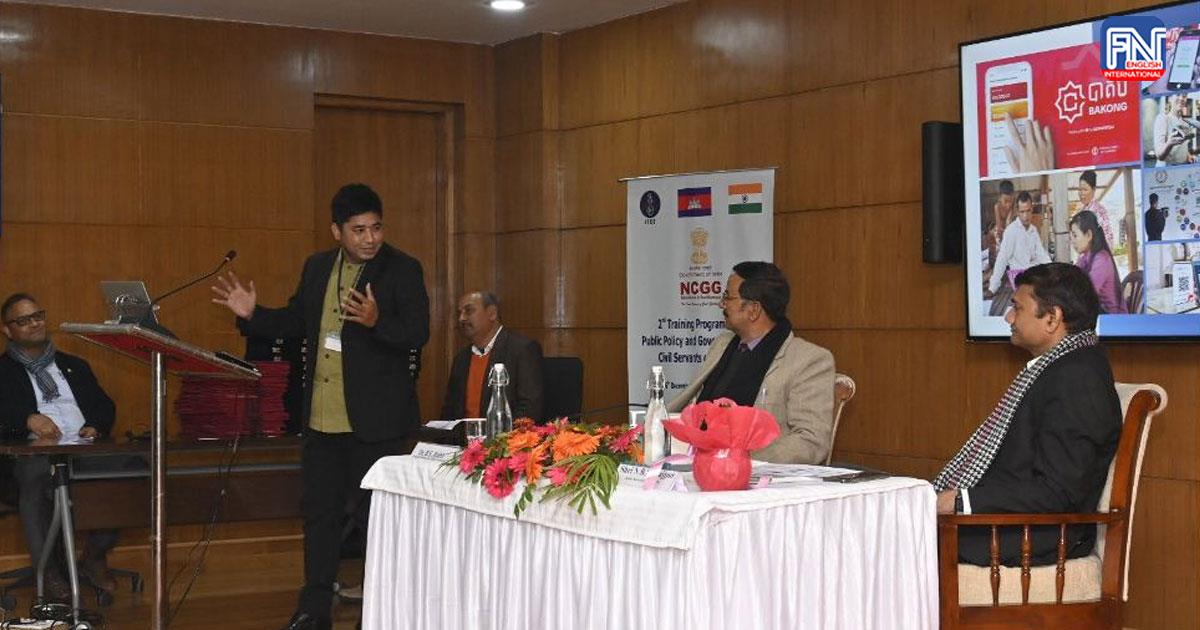Phnom Penh (FN), Mar. 5 – In recent times, the global financial landscape has witnessed a significant shift towards digitalization. As nations around the world strive to keep pace with this transformation, Cambodia finds itself at a crossroads, contemplating the best strategy for its financial future. While the idea of printing riel banknotes in the form of polymer plastic has been proposed, it is imperative for Cambodia to strategically prioritize the development and promotion of digital banking, with a particular emphasis on popular platforms like Bakong from the National Bank of Cambodia. This article aims to delve deeper into the multifaceted advantages of digital banking, outlining how this forward-thinking approach aligns with global trends, fosters financial inclusivity, ensures security, and contributes to environmental sustainability.
The global momentum towards a cashless society is unmistakable, with digital transactions becoming the norm rather than the exception. Cambodia, in recognizing and embracing this trend, can position itself at the forefront of financial innovation by prioritizing digital banking. Bakong, a digital currency and payment system developed by the National Bank of Cambodia, represents a pivotal tool in achieving this transition. As the world leans towards contactless and online transactions, Bakong provides Cambodia with a robust and efficient platform to facilitate seamless electronic payments.
Efficiency and convenience are hallmarks of digital banking, and Bakong epitomizes these qualities. Unlike traditional physical currency, digital transactions occur in real-time, eliminating the need for manual counting, sorting, and the logistical challenges associated with the transportation of physical banknotes. By reducing these operational burdens, Bakong not only enhances the efficiency of the financial system but also minimizes costs related to printing, transportation, and security.
One of the pivotal advantages of prioritizing digital banking is the promotion of financial inclusion. Cambodia, like many developing nations, faces challenges in ensuring that all segments of the population have access to formal financial services. Bakong, accessible through smartphones, provides a gateway to financial services for even remote and underprivileged communities. This inclusivity has the potential to empower individuals and small businesses, fostering economic growth and narrowing the gap in financial access.
Security is a paramount concern in the realm of finance. Physical banknotes are susceptible to damage, loss, and counterfeiting, posing risks to individuals and the economy. In contrast, digital transactions conducted through secure platforms like Bakong employ advanced encryption technologies, ensuring the integrity and confidentiality of financial transactions. The adoption of digital banking thus enhances the overall security of the financial system, instilling trust and confidence among users.
Environmental sustainability is an aspect that should not be overlooked in the discourse on currency evolution. While the proposed polymer plastic banknotes tout recyclability, the production process itself contributes to environmental degradation. Digital banking, on the other hand, drastically reduces the demand for paper and plastic used in physical currency production. By minimizing the environmental footprint associated with traditional banknotes, Cambodia can align its financial evolution with global sustainability goals.
Critics may argue that the transition to digital banking involves substantial initial costs, primarily related to the development of infrastructure and the promotion of digital literacy. However, this argument can be reframed as an investment in the country's future. The initial costs pale in comparison to the long-term benefits, including reduced printing and maintenance costs, increased efficiency, and enhanced financial security. Moreover, these investments can have far-reaching positive effects on economic development, job creation, and the overall well-being of the population.
To fully capitalize on the potential benefits of digital banking, Cambodia must actively invest in digital infrastructure. This involves expanding network coverage, ensuring reliable internet connectivity, and fostering digital literacy initiatives. By addressing these fundamental aspects, the government can pave the way for a smooth and comprehensive transition towards a digital financial ecosystem.
Furthermore, the integration of emerging technologies, such as blockchain, can bolster the security and transparency of digital transactions. Blockchain, the underlying technology of many digital currencies, provides a decentralized and tamper-resistant ledger, mitigating the risks associated with fraud and manipulation. Incorporating such cutting-edge technologies into the financial system positions Cambodia as a pioneer in the adoption of secure and transparent digital financial solutions.
In conclusion, while the idea of printing riel banknotes in the form of polymer plastic may have its merits, Cambodia should strategically prioritize the development and promotion of digital banking, with a specific focus on platforms like Bakong. This forward-thinking approach aligns with global trends, fosters financial inclusivity, ensures security, and contributes to environmental sustainability. The shift towards a cashless society is not merely a technological evolution; it is a strategic imperative for nations looking to secure a resilient and progressive financial future. Cambodia, by embracing digital banking, can position itself as a leader in financial innovation and pave the way for a more inclusive, efficient, and sustainable financial ecosystem.
=FRESH NEWS
